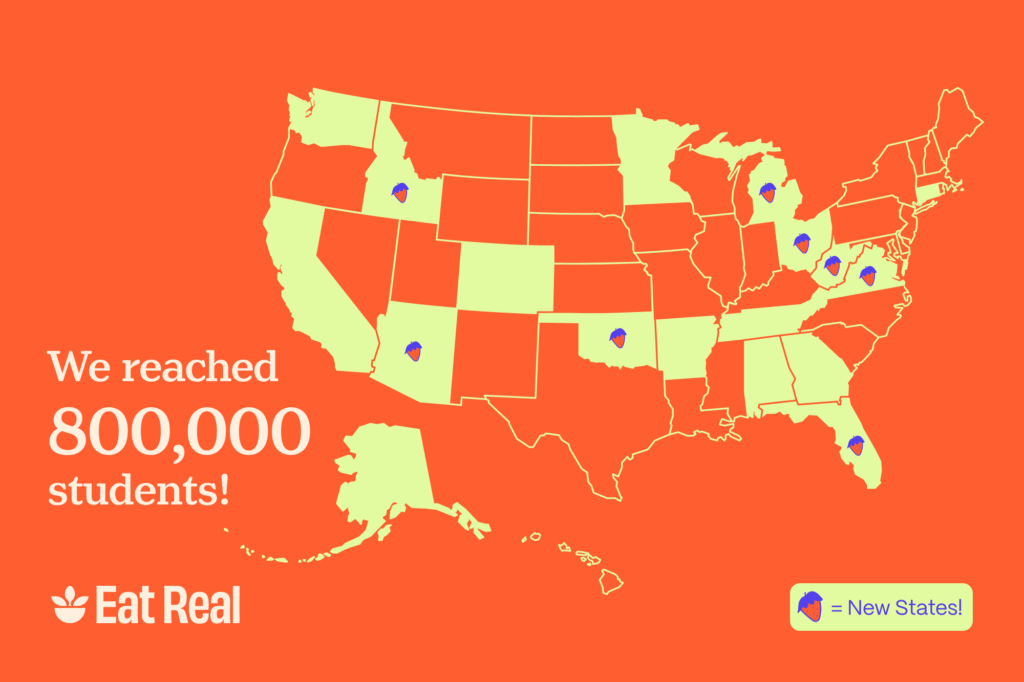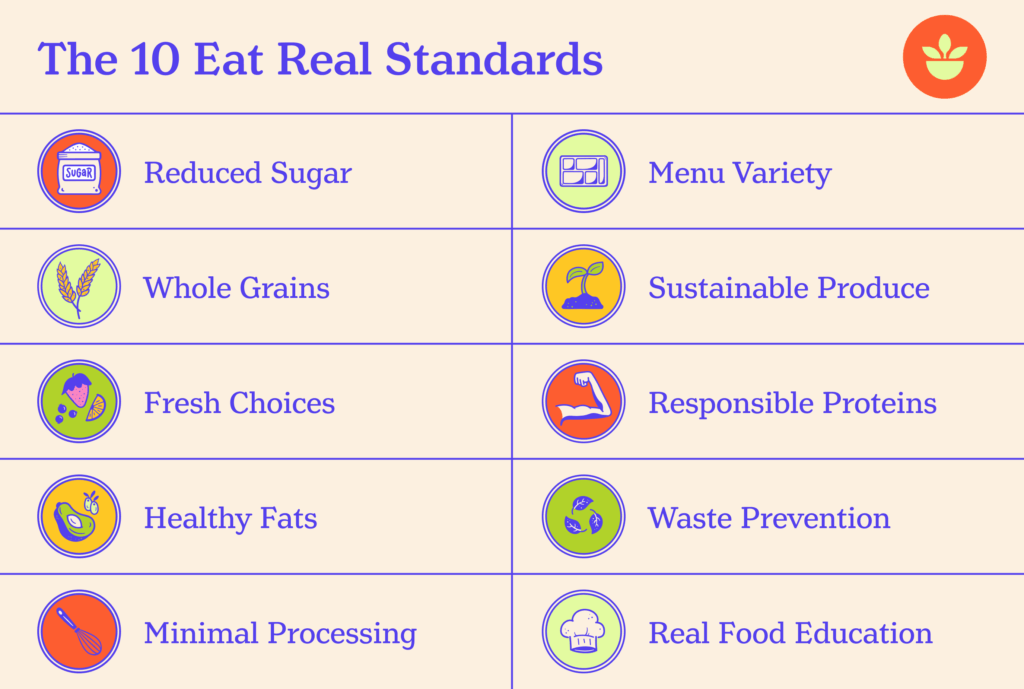Eat Real is now in 18 states!
Yes, you read that right! This fall Eat Real is now in 18 states, reaching a total of 800,000 students nationwide. From bustling cities to rural America, public school foodservice leaders across the country are finding community in Eat Real to push what is possible in the cafeteria.
“Foodservice directors across the country, who we are proud to call our partners, are rallying to bring more delicious, nutritious, and planet-sustaining meals to their students every day,” said Nora LaTorre, CEO of Eat Real. “It’s transforming the way our students learn, grow, and thrive. We are beyond thrilled to stand alongside them to help our nation’s kids reach their full potential.”

Our Updated Standards: Built Together, Backed by Science
As part of this expansion, all participating schools will be evaluated using our freshly updated Eat Real standards. These new guidelines are based on the latest science in childhood nutrition, metabolic health, and school food innovation.

“These new standards are grounded in rigorous science and reflect what the medical community has long known: reducing added sugar and prioritizing real food with its fiber and micronutrients are essential for children’s health and development. As a nutrition expert and as a parent myself, I know that these evidence-based changes will help to safeguard the next generation.”
— Dr. Robert Lustig, Co-Founder & Chief Science Officer, Eat Real
Creating these updated standards was a labor of love rooted in true community partnership. We teamed up with our Standards Advisory Committee, Medical Advisory Board, and over 60 public commenters — including doctors, dietitians, farmers, educators, parents, food waste experts, researchers, and foodservice professionals — to make sure the result is science-based, practical, and ready to roll in real school kitchens.
“I joined the Eat Real Certification program because I want to show that tasty and healthy aren’t opposing concepts, I want to connect with other likeminded school foodies, I want an objective analysis and road map for our program, and I want all the assistance in improving the quality of our school meals that I can get!”
— Andy Pense, Department of Child Nutrition, Fayette County Schools, Fayetteville, WV
